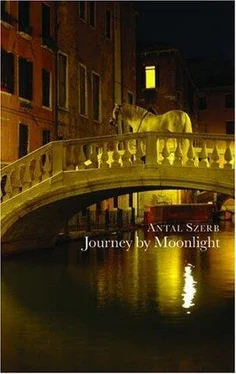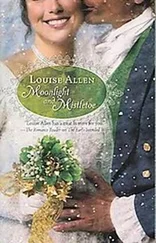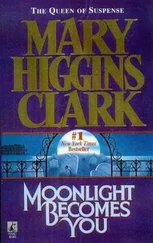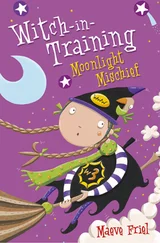“And now, go to hell. I’ve still got to write my Oxford lecture. Have I shown you the letter, the one inviting me to Oxford? Just wait, it won’t take a second … Isn’t it wonderful what he says about me? Of course if you read it as it stands it doesn’t say very much, but if you take into account that the English love to understate their real meaning, then you can see what it means when they describe my work as meritorious … ”
Mihály left, deep in thought. He set off south alongside the Tiber, walking away from the city centre towards the great dead Maremma. On the city boundary there is a strange hill, the Monte Testaccio, and this he climbed. Its name, ‘shard hill’, reflects the fact that it is made up entirely of pieces of broken pottery. In Roman times the wine-market stood here. Here the wines of Spain were brought in sealed amphoras which were then broken and the wine decanted into goatskins. The shards were then swept up into a heap, which eventually formed the present hill.
Mihály dreamily picked up a few reddish bits of pottery and put them in his pocket.
“Relics,” he thought. “Real shards, from the age of the Caesars. And no doubt of their genuineness, which can’t be said of every souvenir.”
On the hill young Roman boys, late descendants of the quirites , were playing at soldiers, hurling shards at one another, fragments of pottery two thousand years old, without a trace of emotion.
“That’s Italy,” thought Mihály. “They pelt one another with history. Two thousand years are as natural to them as the smell of manure in a village.”
Night was already falling when he reached the little tavern in the Trastevere quarter where he had met János Szepetneki the evening before. Following the local custom, he pressed his shabby old hat down on his head and stepped into the smoky interior. His eyes could distinguish nothing, but Szepetneki’s voice was immediately audible. As before, Szepetneki was busy with the girl.
“I hope I’m not disturbing you?” Mihály asked with a laugh.
“Disturbing us, what the hell. Sit yourself down. I’ve been waiting for you with mounting impatience.”
Indignation rose in Mihály, then he was overcome with embarrassment.
“Sorry … I just dropped in for a glass of wine. I was passing by and I had the feeling you might be here.”
“My dear Mihály, don’t say anything. Let’s consider the matter settled. I’m very glad you’re here, speaking for myself and for all the interested parties. And now, listen here. This little witch Vannina is wonderful at reading palms. She told me who I am, what I am. Not over-flattering, but she painted a very accurate picture of me. This is the first woman who hasn’t been taken in by me, and she doesn’t believe I’m a crook. All the same she predicts a bad end for me: a long and difficult old age … Now, let her do you. I’m curious what she’ll say about you.”
A lamp was brought and the girl immersed herself in the examination of Mihály’s palm.
“Oh, the signore is a lucky man,” she said. “He will find money in an unexpected quarter.”
“What are you saying?”
“Somewhere abroad a woman thinks often about the signore . A bald man also thinks often about the signore , but this is not altogether good. This line signifies much conflict. The signore can go with women without worrying, because there will be no children.”
“How do you mean?”
“It’s not as if you cannot make children, but all the same there will be none. The line of fatherhood is missing. In summer you should not eat oysters. Soon you will take part in a christening. An older man will arrive from beyond the mountains. The dead visit you often … ”
Mihály abruptly pulled his hand away, and asked for wine. He looked more closely at the girl. Her large-breasted thinness he now found much more beautiful than he had the night before. And she was much more frightening, much more like a witch. Her eyes had an Italian glitter, and the whites seem to enlarge as he looked into them. That northern idea again flitted through his head: the whole race was mad, that was their greatness.
The girl seized his hand and continued to prophesy, now in real earnest.
“Soon you will receive very bad news. Beware of women. All your trouble is because of women. Oh … the signore has a very good soul, but not one for this world. Oh, dio mio , poor signore … ”
With that she pulled Mihály to her and kissed him fiercely, with tears in her eyes. János laughed out loud and cried “ Bravo !” Mihály was overcome with embarrassment.
“You must come here again, signore ,” said Vannina. “Yes, come again, and often. You’ll be happy here. You will come again, won’t you? You will come?”
“Yes, of course. Since you ask so kindly … ”
“You really will come? Do you know what? My cousin is having a baby soon. She’s always longed for a foreign godfather for the infant. It’s such a fine thing to have. Wouldn’t you like to be godfather to the little bambino ?”
“But of course, with great pleasure.”
“Promise.”
“I promise.”
János was a tactful villain. Through all this he had not once mentioned ‘business matters’. Only when it was late, and Mihály was slowly preparing to leave, did he send the girl away and say:
“Please, Mihály. It is Mr Pataki’s wish that you should write to him about this matter, in your own handwriting, in detail, making it absolutely clear that you authorise him to file a divorce in your name against your wife, and that you acknowledge that he will pay you the twenty thousand dollars in two instalments. You see, Pataki somehow doesn’t trust me one hundred percent, and I’m not surprised. He wants to negotiate with you directly. Meanwhile I am to hand over to you, now, five thousand lire as a down payment.”
He counted the money out on to the table and Mihály crammed it, with some embarrassment, into his pocket. “There,” he thought, “that’s how the die is cast. That’s how you cross the Rubicon. So easily no-one would even notice.”
“Would you please write to Pataki as follows,” said Szepetneki: “you have received, from me, the money he sent. But you must not specify the exact sum. After all, it shouldn’t really be like a receipt or a business letter. That would be rather indelicate, as I’m sure you’ll understand.”
Mihály understood. In his head he instantly calculated how much Szepetneki had pocketed of the money sent to him. Perhaps fifty percent, certainly not more. Never mind, let him have it.
“Well then, God be with you,” said János. “I’ve done my part in this, and tomorrow I’m leaving. But the rest of the evening I’ll spend with Vannina. A splendid girl, I can tell you. Call on her often when I’m not here.”
IT BECAME STEADILY HOTTER. Mihály lay naked on his bed, but could not sleep. Since he had accepted Pataki’s money and written that letter, he had not been able to settle.
He got up, washed, and set off for a stroll in the summer night. Soon he reached the Acqua Paola and stood delighting in the classical waterfall as, with timeless calm and proud dignity, it exercised its mystery in the moonlight. He remembered the little Hungarian sculptor in the Collegium Hungaricum whom he had got to know through Waldheim. The sculptor had walked from Dresden to Rome along the Via Flaminia, which, as Mihály knew from school, was the route always taken by victorious invaders from the north. Then on his first evening he had come up here, on to the Gianicolo. He had waited for them to clear everyone from the park and lock the gate, then he climbed over the wall and lay down in a bush, high above Rome, with the city at his feet. When morning came he rose, undressed and bathed in the pool of the Acqua Paolo, the classical waterfall.
Читать дальше












